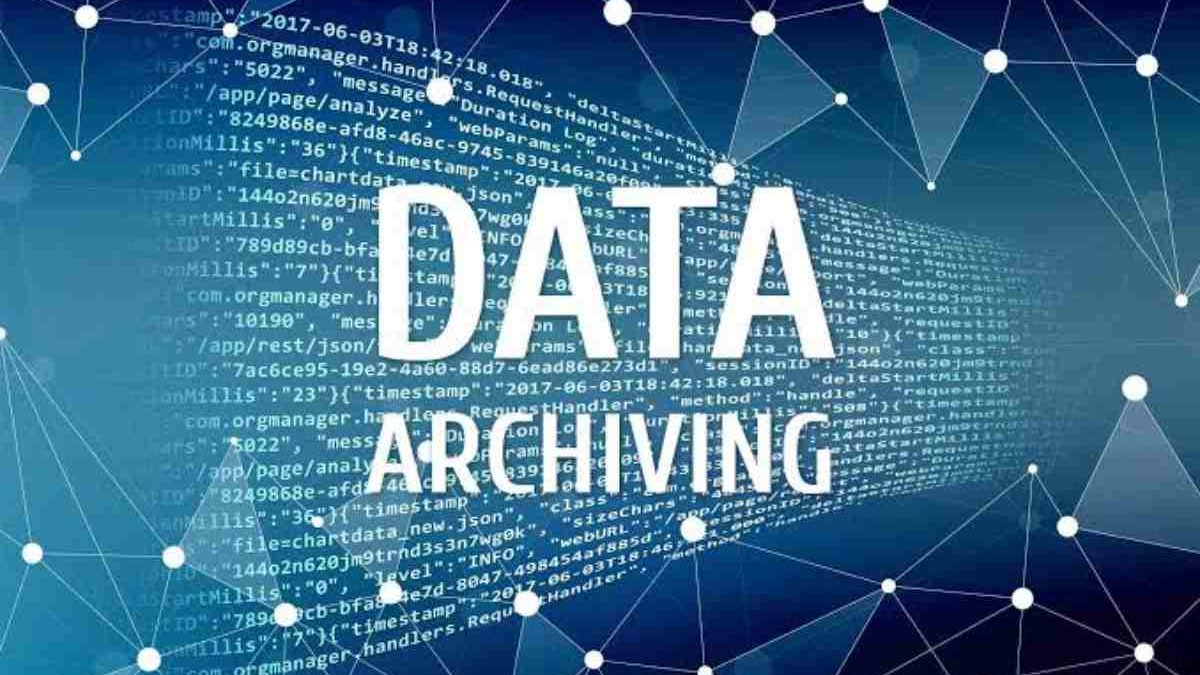Data archiving has emerged as a crucial component of modern business operations, evolving significantly from its early days as a mere compliance necessity. In this article, we embark on a journey through time to explore the transformation of data archiving practices.
From its humble beginnings as a response to regulatory requirements and the transition from physical to electronic archives for efficiency gains, to the emergence of email archiving and proactive compliance measures, the landscape has continuously shifted.
However, the 21st century has ushered in a new era, marked by escalating data breaches and cyber threats, prompting a fundamental shift in focus. Data archiving is no longer solely about meeting regulatory demands; it has become a vital element in safeguarding sensitive information.
As we delve into this evolution, we’ll also examine the role of cutting-edge technologies like AI and machine learning, which have reshaped archiving practices.
Furthermore, we’ll look ahead to the future of data archiving, where integration with broader data management strategies and automation will be key to staying ahead in the ever-evolving data landscape.
Table of Contents
Compliance in the Early Days
Data archiving, in its early stages, was a necessary evil. Businesses had to comply with regulatory requirements that mandated the retention of certain types of data for a specified period. These regulations varied across industries and regions, and failure to adhere to them could result in severe penalties.
In the pre-digital era, data archiving involved physical paper documents stored in dusty filing cabinets. However, with the advent of computers, businesses began digitizing their records. This shift from paper to digital archives marked a significant leap in efficiency and accessibility.
The Emergence of Electronic Data Archiving: Efficiency and Accessibility
Digital Era Transforms Archiving
The digital revolution of the late 20th century brought about profound changes in data archiving. Electronic information archiving systems replaced paper records, making it easier to organize, retrieve, and manage data. This shift not only improved efficiency but also enabled organizations to respond more swiftly to regulatory requests and audits.
Archiving as a Cost-Saving Measure
Beyond compliance, businesses began to recognize the cost-saving potential of electronic data archiving. Digital archives required less physical storage space, eliminated the need for extensive manual record-keeping, and reduced the risk of document loss due to disasters such as fires or floods.
The Rise of Email Archiving
The explosion of email communication in the business world necessitated a specialized form of archiving: email archiving. Companies turned to dedicated email archiving solutions to store and manage email correspondence in a manner compliant with regulations.
Proactive Compliance Measures
As the regulatory landscape continued to evolve, businesses realized the importance of proactive compliance measures. Rather than merely archiving data to meet minimum requirements, organizations started implementing comprehensive archiving strategies. These strategies included automated data retention policies, audit trails, and the ability to quickly locate and retrieve specific data when needed.
Data Archiving in the 21st Century: The Shift Towards Security
Data Breach Concerns
The 21st century has brought new challenges to data archiving. With an ever-increasing number of data breaches and cyber threats, organizations are now acutely aware of the importance of safeguarding their archived data. Data breaches not only result in financial losses but also damage an organization’s reputation and erode customer trust.
Archiving and Data Security
In response to these threats, data archiving has shifted its focus from compliance alone to data security. Archiving solutions now incorporate robust encryption, access controls, and authentication measures to ensure the confidentiality and integrity of archived data.
The Role of AI and Machine Learning
Artificial intelligence and machine learning have also found their place in data archiving. These technologies help organizations detect anomalies and potential security breaches in their archived data, allowing for rapid response and mitigation.
The Future of Data Archiving: Integration and Automation
Integration with Data Management
The future of data archiving lies in its seamless integration with broader data management strategies. Archiving solutions will become more intertwined with data backup, disaster recovery, and data lifecycle management, creating a holistic approach to data governance.
Automation and AI-Driven Archiving
Automation will play a pivotal role in the future of data archiving. AI-driven archiving systems will automatically classify and tag data, making it easier to enforce retention policies and identify valuable insights within archived information.
Conclusion: The Continuous Evolution of Data Archiving
The evolution of data archiving from a compliance-driven necessity to a security-focused imperative highlights the adaptability of technology in response to changing business needs. As organizations continue to grapple with regulatory demands and cybersecurity threats, data archiving will remain a vital tool in the arsenal of data management.
By embracing the latest advancements in technology and focusing on security, businesses can ensure that their archives not only meet compliance requirements but also serve as a robust defense against the ever-present threat of data breaches.


